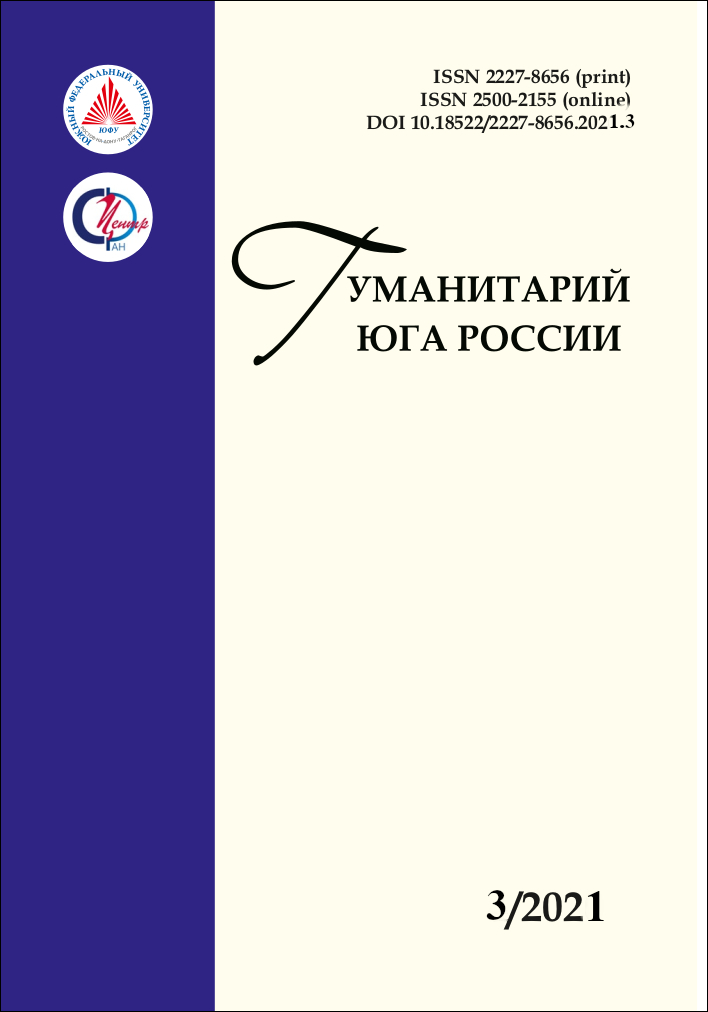Методология исследования факторов управления демографическими процессами
Научная статья
Аннотация
Литература
2. Борисов В. А. Демография. М.: NOTA BENE, 1999, 2001. 272 с.
3. Герасименко Н. Ф., Заридзе Д. Г., Сахарова Г. М. Здоровье или табак: цифры и факты // Здоровье или табак? : материалы форума. М., 2007.
4. Герасимов Г. И., Дятлов А. В., Лукичев П. Н. Демографическая динамика и стадии экономического роста // Научный результат. Социология и управление. 2019. Т. 5, № 3. С. 20–36.
5. Заридзе Д. Г., Карпов Р.С., Кондрашова С. М., Конобеевская И. Н., Мень Т. Х., Шайн А. А., Шихман С. М. Курение – основная причина высокой смертности россиян // Вестник РАМН. 2002. № 9. С. 40–45.
6. Злоупотребление алкоголем в Российской Федерации: социально-экономические последствия и меры противодействия. М.: Общественная палата Российской Федерации, 2009.
7. Кваша А. Я. Цена победы // СССР: демографический диагноз. М., 1990.
8. Конституция Российской Федерации. Ст. 38.
9. Коротаев А. В. Математические модели социально-демографических циклов и выхода из мальтузианской ловушки: некоторые возможные направления дальнейшего развития // Россия: тенденции и перспективы развития : ежегодник. М.: ИНИОН РАН, 2018. Вып. 13, ч. 2. 936 с.
10. Лукичев П. Н. Общая теория социальной динамики: основания и начала анализа. 2-е изд. М.: РУСАЙНС, 2017. 324 с.
11. Лукичев П. Н. Специфика демографических процессов на этапах экономического развития // Актуальные проблемы воспитания в образовательной среде : материалы Междунар. междисципл. науч.-практ. конф., 4 апреля 2019 г., г. Новочеркасск. Новочеркасск: Лик, 2019. С. 157–163.
12. Масленникова Г. Я., Оганов Р. Г. Медицинский и социально-экономический ущерб, обусловленный курением табака в Российской Федерации: болезни системы кровообращения // Профилактическая медицина. 2011. № 3. С. 19–27.
13. Немцов А. В. Алкогольная история России: новейший период. М.: Либроком, 2009.
14. Нужный В. П., Савчук С. А. Алкогольная смертность и токсичность алкогольных напитков // Партнеры и конкуренты. 2005. № 5. С. 18–26; № 6. С. 27–35; № 7. С. 24–31; № 8. С. 15–21.
15. Романчук А. А. Гипотеза о выходе из «мальтузианской ловушки» как результате опережающего технологического роста: критический анализ // Концепт: философия, религия, культура. 2019. № 4 (12). С. 129–140.
16. Рыбаковский Л. Л. Динамика и факторы демографического развития СССР во второй половине ХХ века // Демографическое развитие СССР в послевоенный период. М., 1984.
17. Халтурина Д. А., Коротаев А. В. Русский крест: факторы, механизмы и пути преодоления демографического кризиса в России. М.: КомКнига/URSS, 2006.
18. Volkov Y. G., Lukichev P. N., Khunagov R. D., Kartashevich E. V., Meskhi B. B. Sociodemographic management indicators of the state of the economy (a case study of Russian statistics) // International Journal of Sociology and Social Policy. 2020. № 41 (1–2). P. 116–129.
19. Leon D., Saburova L., Tomkins S., Andreev E., Kiryanov N., McKee M., Shkolnikov V.M. Hazardous alcohol drinking and premature mortality in Russia: a population based case-control study // Lancet. 2007. № 369 (9578). P. 2001–2009.
20. Zaridze D., Maximovitch D., Lazarev A., Igitov V., Boroda A., Boreham J., Boyle P., Peto R., Boffetta P. Alcohol poisoning is a main determinant of recent mortality trends in Russia: evidence from a detailed analysis of mortality statistics and autopsies // International Journal of Epidemiology. 2009. № 38/1. P. 142–153.
Поступила: 10.03.2019
Опубликована: 29.07.2021






